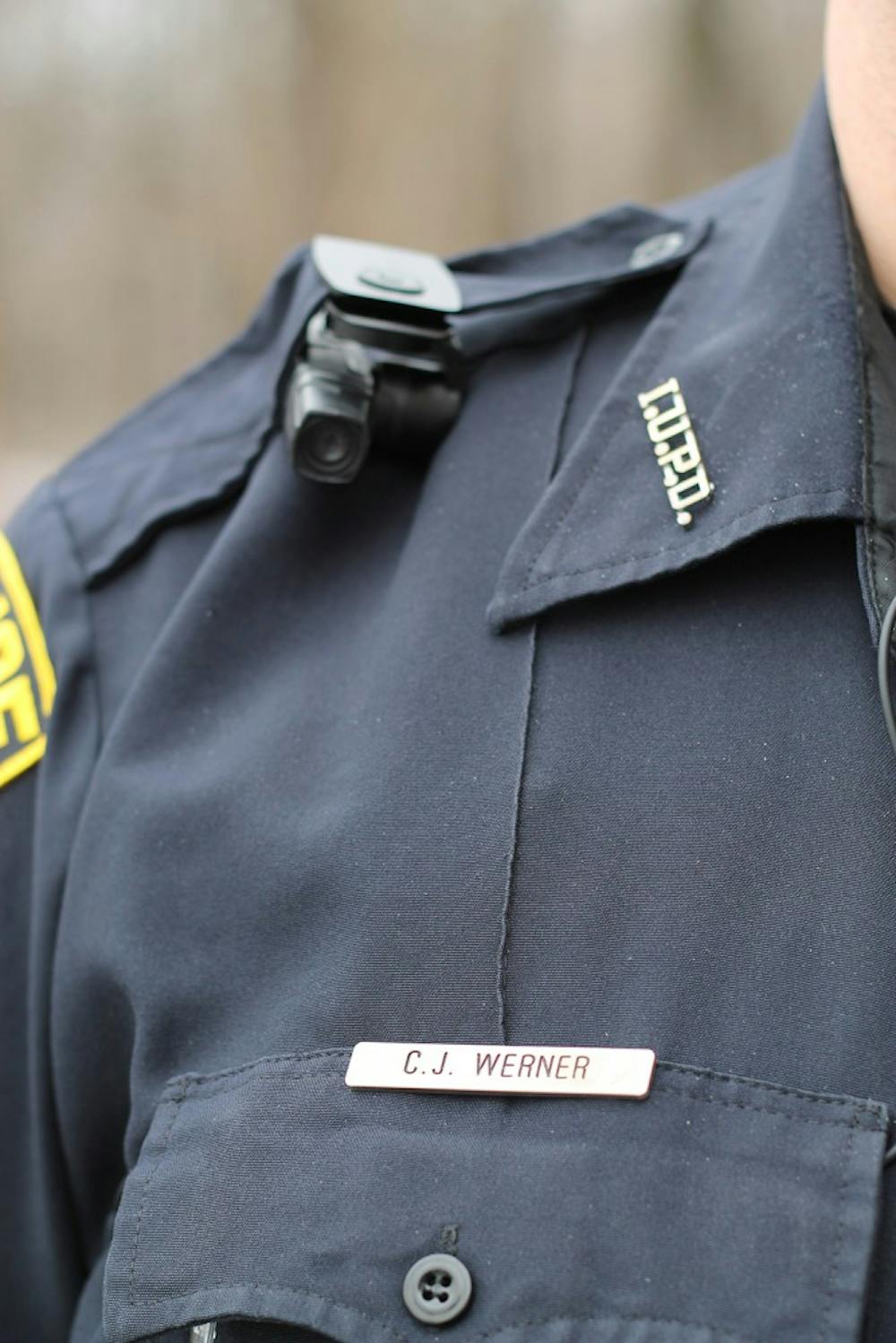The officers can choose to wear a headpiece, shoulderpiece or a chestpiece. Chad Warner is a patrolman at IUPD and chose to wear a shoulder piece Wednesday.
“Later this week, if I test another one, I’ll try a different mounting technique to see how that one works,” ?Warner said.
The small camera is clipped to the lapel on his shoulder, which then attaches to a square, black battery pack on Warner’s chest.
“Comfort-wise, I barely notice it,” Warner said. “However, I do realize that I have to be conscious a lot more. I have to be able to turn it off any time we have any kind of conversation amongst police officers or other co-workers.”
Some pieces of information discussed between officers cannot be disclosed to the body-worn cameras, ?Warner said.
Officers are to turn off the cameras during restroom breaks, meal times, personal conversations and conversations with co-workers. Otherwise, the body-worn camera is to remain on at all times, Warner said.
The field test committee had worries about the hindrance of the body-worn cameras, Superintendent of Public Safety for IU-Bloomington Jerry Minger said.
But Warner said he has not experienced any limitations in his movement since wearing the camera.
The test protocol requires select officers to inform the public they are wearing a camera, while other officers are not required to inform the public, Munroe said.
Officer Warner was required not to inform the public of his body-worn camera Wednesday, he said. The department’s officers rotate the protocol depending on the day, Munroe said.
“That’s to see if people react differently to us,” ?Warner said.
The officers will soon begin taking notes on specific details during the field test to record the different responses the public has, Munroe said.
An IU junior majoring in English, Jordan Shea said the body-worn cameras could be beneficial in keeping students safe and officers accountable.
“In the age of social media, there’s a new level of transparency between employer and employee,” Shea said. “Cops serve the town they work for. I don’t feel like they should be allowed to say whatever they want between each other.”
Shea said she would feel safer knowing the officers would be accountable for their interactions with her and the public.
She also said she would be comfortable asking an officer if she was being recorded if the officer hadn’t informed her.
“I’m hoping they’ll become so common you just know an officer has one on,” Shea said. “I do think the students will be safer. It’ll help train the cadets around IU with accountability.”
The body-worn cameras are too new to be able to fully predict where this field test could go, Warner said.
“It seems like the trend in law enforcement is body cams, so I assume that’s probably the direction we’re going to go, as well,” Warner said.






